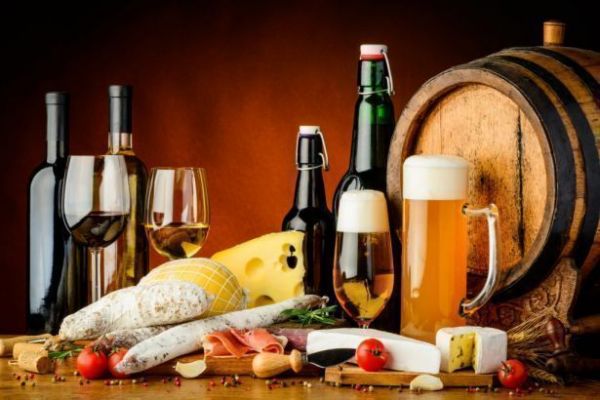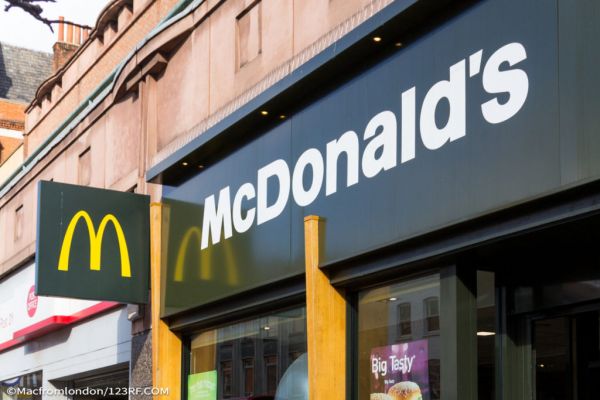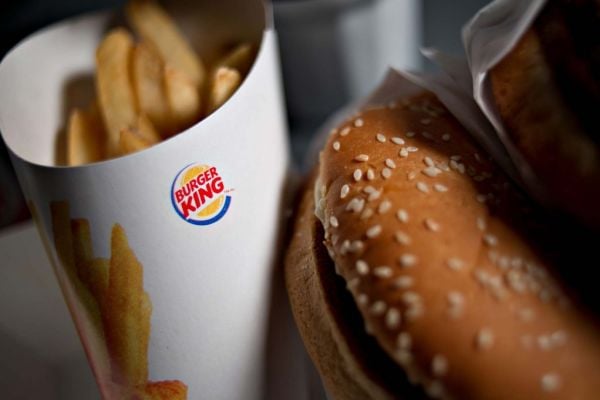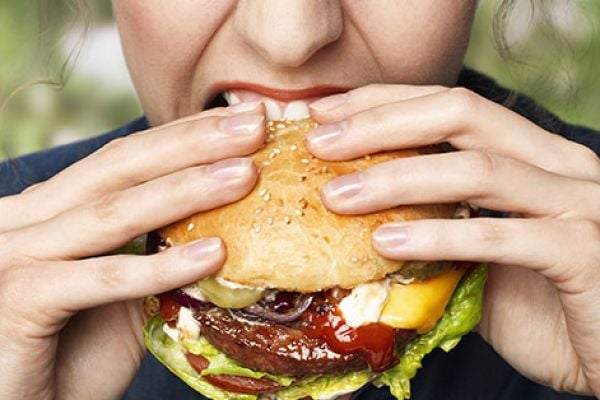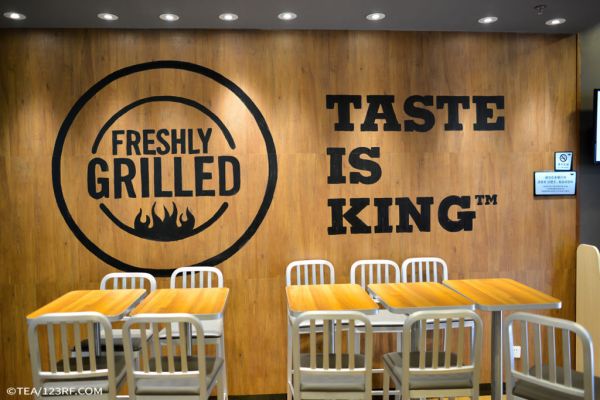Hospitality Ireland presents a round-up of global food, drinks and hospitality venue news.
Motional Partners With Uber To Provide Autonomous Food Deliveries In California
Motional, the self-driving joint venture of Hyundai Motor Co and Aptiv PLC, on Thursday December 16 said it was entering the autonomous delivery market by providing meal kits for some California Uber Technologies Inc customers.
Motional said it would start delivering meals from select restaurants on Uber's food delivery app Eats in Santa Monica in early 2022.
The companies did not say whether the partnership would be expanded to other locations. But Motional President and Chief Executive Karl Iagnemma in a statement said the joint-venture was seeing "many long-term opportunities for further deploying Motional's technology across the Uber platform."
The deliveries will be made in Hyundai's fully electric IONIQ-5 vehicles, converted to operate autonomously. A spokesperson said a safety driver will be present inside the vehicles.
Asked whether Uber Eats customers would have to walk to the vehicles to accept their meal orders, the spokesperson said the companies would share more details on the service ahead of the launch.
Motional's pivot to food delivery follows a move by many companies in the self-driving industry to expand from their original ambition of providing a consumer robotaxi services.
Self-driving companies have repeatedly pushed out timelines to provide truly driverless rides, with only a few limited fully autonomous programs available across the U.S.
Automating the delivery of goods in less challenging environments, such as suburbs or along highway stretches, is offering a faster way to generate returns.
Motional has been operating a robotaxi pilot program in Las Vegas with U.S. Uber rival Lyft Inc over the last three years. Motional and Lyft in November said they will launch a fully driverless ride-hail service in Las Vegas in 2023.
French Tie-Up Aims To Put More Fizz In Champagne Market
Two of Champagne's leading producing cooperatives, Nicolas Feuillatte and Castelnau, have agreed to merge in a bid to become one of the three biggest players in the sector which has seen sales rocket this year.
The proposal was adopted by general assemblies at both the Centre Vinicole - Champagne Nicolas Feuillatte (CV-CNF) and the Cooperative Regionale des Vins de Champagne Castelnau (CRVC) on Wednesday December 15.
Between them CV-CNF and CRVC represent over 6,000 growers and nearly 3,000 hectares, which accounts for about 9% of the Champagne vineyard, CV-CNF said in a statement.
The new group, named Terroirs & Vignerons de Champagne, aims to reach sales of €300 million and a 5% market share in volume within five years based on a production potential of 24.5 million bottles, it said.
That would still be far behind the leader of the sector, luxury group LVMH, which sold about 65 million bottles per year before the pandemic under brands including Moët & Chandon, Ruinart, Veuve Clicquot and Dom Perignon.
Pernod Ricard is the number two with Perrier-Jouët and Maison Mumm.
The closing of the Terroirs & Vignerons de Champagne merger comes as champagne sales have soared this year after a slump in 2020 due to the closure of bars and restaurants during the pandemic.
By mid-December sales of champagne Nicolas Feuillatte, which is the world's third largest brand in volume, had already surpassed their record of 2019, helped by record sales in the United States and Britain, a CV-CNF spokesperson said.
Producers endured their worst harvest in 40 years in 2021 after vineyards were ravaged by frosts and mildew fungus attacks. But Champagne is typically made from a combination of wines produced the previous year and earlier.
McDonald's Ex-CEO Pays $105m To Settle Lawsuit Over Relationships With Employees
The former CEO of McDonald's Corp paid over $105 million and apologized to the company in a settlement over the burger chain's allegations that he lied to cover up sexual relationships with employees.
As part of the settlement, ex-CEO Steve Easterbrook returned equity awards and cash worth over $105 million that he received as a severance package in 2019, McDonald's said in a statement on Thursday December 16.
McDonald's sued Easterbrook in August 2020, nine months after reaching a severance deal, claiming he never gave directors a complete picture of his relationships with employees.
The company said that when it fired Easterbrook, it only knew of one non-physical consensual relationship with an employee. But an anonymous tip after his ouster led to the discovery of dozens of sexually explicit photos of women, including three employees, that Easterbrook sent to his personal email from his company account.
In his response to the lawsuit at the time, Easterbrook had claimed that McDonald's had information about his relationships on its computer systems when it negotiated his severance package.
"Today's resolution avoids a protracted court process and moves us beyond a chapter that belongs in our past," McDonald's Chairman Enrique Hernandez Jr. said in a message to employees seen by Reuters.
McDonald's said it would dismiss its action against Easterbrook with prejudice.
"During my tenure as CEO, I failed at times to uphold McDonald's values and fulfill certain of my responsibilities as a leader of the company. I apologise to my former co-workers, the Board, and the company's franchisees and suppliers for doing so," Easterbrook said in the same news statement provided by McDonald's.
McDonald's said in April it would require new training at its restaurants to fight harassment and discrimination after facing lawsuits accusing it of subjecting female employees at corporate-owned outlets to widespread sexual harassment.
UK, Australia Sign Deal Forecast To Create £10bn In Extra Trade
Britain and Australia have signed a free trade deal projected to eventually boost bilateral trade by over £10 billion, eliminating tariffs, opening up sectors like agriculture and allowing freer movement for service-sector professionals.
The elimination of tariffs on Australian wine, and a tariff-free quota for beef will help exporters hit by sanctions in China to pivot to British sales. British cars, whiskey, confectionary and cosmetics will see tariffs phased out in Australia.
"This is the most comprehensive and ambitious free trade agreement that Australia has concluded, other than with New Zealand," Australia's Prime Minister Scott Morrison and Trade Minister Dan Tehan said in a joint statement.
China is Australia's largest trading partner, but a diplomatic dispute led to Beijing imposing sanctions on a raft of Australian agricultural products last year. This prompted the Morrison government to urge exporters to reduce their reliance on China.
The agreement with Britain would "further strengthen the special relationship between our two countries", Morrison said.
Treasurer Josh Frydenberg on Friday December 17 said Australia had been subjected to "economic coercion" by China, but argued the Asian giant would continue to need its iron ore, the country's single biggest export earner.
Speaking at a Reuters Breakingviews event, Frydenberg said Australian exporters have been "very effective in finding new markets for our products".
Tariffs will be eliminated on 99% of Australian goods exported to Britain, valued at A$9.2 billion ($6.60 billion), with A$43 million in duties removed from Australian wine.
An initial tariff-free quota for Australian beef of 35,000 tonnes will lead to the elimination of tariffs after 10 years.
British businesses will be encouraged to invest in Australia, and a working holiday programme is to be expanded to allow Australians aged 35 years and under to work in Britain for three years.
Analysis drawn up by Britain and independently vetted said it would boost the economy by 2.3 billion pounds per year and unlock 10.4 billion pounds of imports and exports by 2035.
Total goods and services trade between Britain and Australia was worth £14.5 billion in the year to June 2021, with Australia ranked Britain's 21st-largest trade partner and accounting for 1.2% of total British trade.
The deal adds only a small fraction to Britain's $3 trillion economy, but it is the first trade agreement London negotiated from scratch since it left the European Union.
"This is just the start as we get on the front foot and seize the seismic opportunities that await us on the world stage," British Trade Minister Anne-Marie Trevelyan said.
Britain sees the deal as an important step toward membership of a trans-Pacific trade bloc that would shift its economic centre away from Europe and towards growing economies with demand for professional services.
The two nations forged an Indo-Pacific security pact, Aukus, with the United States in September to share defence technology including nuclear submarines with Australia.
When the agreement in principle was announced earlier this year, British farmers complained it exposed them to competition from large-scale Australian meat producers that could squeeze out home-grown products. Britain says the deal has safeguards to protect farmers.
In addition to beef, Australian sugar and sheep meat will also benefit from initial tariff-free quotas, with all tariffs removed after eight and 10 years respectively.
The final terms of the deal will be put before British parliament for scrutiny.
Just Eat Strikes First British Grocery Deal With Asda
Just Eat Takeaway.com said on Friday December 17 it had struck a deal with British supermarket group Asda to sell groceries through its delivery platform.
The deal, Just Eat's first with a major British supermarket chain, comes after the company has faced criticism it has been slow to respond to similar moves by competitors: Deliveroo has partnerships with Waitrose, Sainsbury's, Aldi and Morrisons, while Uber has worked with Shell, Asda and Sainsbury's.
The past year has also seen a flurry of new entrants to European food delivery, including fast grocery delivery firms such as Gorillas, Getir, Weezy and Fancy. Meanwhile, U.S. companies are coming to Europe, as DoorDash bought Finland-based deliverer Wolt for $8 billion in November and privately held U.S. firm GoPuff has bought both Dija & Fancy.
Takeaway said the move was "a significant step."
"With over 60,000 restaurant partners on the Just Eat platform, across 95% of the UK, the partnership with Asda marks the next stage in Just Eat’s commitment to delivering the best service and range of options for its consumers."
Takeaway, which also owns the Grubhub brand in the United States, also has a delivery partnership with 7-Eleven.
London's West End Sees Muted Christmas Trading As Omicron Bites
London's main shopping and entertainment district has predicted a muted final weekend of Christmas trading after customer traffic plunged on Thursday December 16, with the highly transmissible Omicron coronavirus variant keeping people at home.
The New West End Company, which represents 600 brands, restaurants and businesses in London's West End, said footfall on Thursday was down by 7% from the previous week and down 32% from pre-pandemic figures.
Britain first expressed concern about the Omicron variant on Nov. 25. and on Dec. 9, Prime Minister Boris Johnson imposed tougher COVID-19 restrictions in England, ordering people to work from home, wear masks in public places and use vaccine passes to slow the spread.
"With rising COVID cases dampening consumer confidence and a planned Tube strike looming on Saturday, we’re anticipating a muted final weekend of Christmas trading at a time when West End businesses should be enjoying a much needed boost," CEO Jace Tyrrell said on Friday December 17.
He joined calls for the government to provide temporary financial support to leisure businesses across the United Kingdom.
British retail sales rose faster than expected last month, helped by Black Friday discounts, early Christmas shopping and no lockdown restrictions that closed many shops last year, official figures showed on Friday December 17.
However, Omicron has heightened fears over Christmas trading.
On Wednesday December 15, consumer electricals retailer Currys said its market had softened in recent weeks, while on Thursday December 16 online fashion retailer Boohoo warned on annual profit.
Darden CEO Eugene Lee To Retire, Company Insider To Takeover
Darden Restaurants Inc said on Friday December 17 Chief Executive Officer Eugene Lee Jr. would retire in May and be replaced by Ricardo Cardenas, its chief operating officer.
Shares of the company, which owns Olive Garden and LongHorn Steakhouse, fell about 3% in premarket trade.
Lee, 60, has been the CEO of Darden for the last seven years. The company said he is expected to serve as chairman in a non-executive capacity after he retires.
Cardenas has worked with Darden since 1984, starting off as an hourly worker before moving up the ranks. He has also served as the company's chief financial officer and chief strategy officer.
Darden on Friday December 17 also reported its second-quarter revenue rose 37% to $2.27 billion, beating analysts' estimates of $2.23 billion, according to Refinitiv IBES data.
British Cabinet To Meet As Omicron Sweeps Europe
Britain's cabinet will meet on Monday December 20 as pressure grows to slow the spread of the Omicron coronavirus variant, a day after the Netherlands imposed a fourth lockdown and as other European countries consider putting a squeeze on Christmas.
Omicron infections are multiplying rapidly across Europe and the United States, doubling every two or three days in London and elsewhere and taking a heavy toll on financial markets which fear the impact on the global economic recovery.
The variant was first detected last month in southern Africa and Hong Kong and so far been reported in at least 89 countries. The severity of illness it causes remains unclear.
Dutch Prime Minister Mark Rutte announced a shutdown Saturday December 18, ordering the closure of all but essential stores, as well as restaurants, hairdressers, gyms, museums and other public places from Sunday until at least Jan. 14.
Britain has reported record levels of COVID-19 cases in recent days. The cabinet was due to meet at 2 p.m. (1400 GMT) on Monday December 20, local media said.
Twelve people in Britain have died with the Omicron variant, Deputy Prime Minister Dominic Raab said on Monday December 20, refusing to rule out a tightening of social restrictions before Christmas.
"I just can't make hard and fast guarantees," he told Times Radio. "In assessing the situation we rely very heavily on the real data coming through and it will take a little bit more time to assess this critical issue of the severity of Omicron."
Health minister Sajid Javid said on Sunday December 19 the British government was watching the data closely. Any decision to limit how people can celebrate Christmas would come at a high political cost for Prime Minister Boris Johnson, whose authority has been undermined by questions over whether he and his staff broke lockdown rules last year.
The German government's scientific advisory panel said on Sunday December 19 it was necessary to further limit contact, with data so far showing that boosters alone would not be enough to contain the spread of the virus.
The state premier of North Rhine-Westphalia, Hendrik Wuest, did not rule out contact restrictions on people who have been fully vaccinated or had a booster shot. "We should be careful about ruling anything out," he told broadcaster ARD on Monday.
Ireland on Friday December 17 ordered bars and restaurants to close at 8 p.m. and reduced the capacity in all public events. Italy is also considering new measures to avoid a surge in infections, newspapers reported on Sunday December 19.
U.S. stock index futures tumbled more than 1% on Monday December 20, dragged down by concerns about the impact of tighter restrictions on the global economy.
"After battling endless headwinds in recent weeks, markets have finally been knocked over as the rapid spread of Omicron finally reaches panic mode," Russ Mould, investment director at AJ Bell, wrote in a client note.
European stocks hit two-week lows and were down 1.49% at 1205 GMT on Monday December 20. Shopper numbers across Britain's high streets fell 2.6% over the Dec. 18-19 weekend versus the previous weekend, researcher Springboard said.
"Omicron...remains one of the biggest issues for markets right now and has significantly clouded the outlook moving into year-end," Deutsche Bank analysts said in a note, adding that Manchin's stance "marks a significant blow for President Biden’s economic agenda".
Israel added the United States to its "no-fly" list, citing concerns over the Omicron variant. U.S. infectious disease expert Anthony Fauci said Omicron was "raging through the world" as he urged Americans to get booster shots.
Since the start of the month, U.S. COVID cases have risen 50%, according to a Reuters tally.
New York state recorded its third straight day of record cases with more than half in New York city, where Mayor Bill de Blasio called for the country to "go on a war footing" to fight Omicron with vaccinations.
Booster shots, on top of two-shot vaccinations, appear key to fighting the variant. Moderna Inc said on Monday a booster dose of its vaccine seemed to be protective against Omicron in laboratory testing, and that the current version of the shot would remain Moderna’s "first line of defence".
Thailand is considering reinstating mandatory quarantine for foreign visitors as the health ministry reported the country's first case of local transmission of the Omicron strain.
Australia for its part is pushing to ease curbs despite a predicted surge in infections, hoping inoculations will help keep people out of hospital.
More than 274 million people have been reported to be infected by the coronavirus globally since the first cases were identified in China in December 2019. More than 5.65 million people have died.
Interactive graphic tracking global spread of coronavirus: open https://tmsnrt.rs/2FThSv7 in an external browser.
Eikon users can click https://apac1.apps.cp.thomsonreuters.com/cms/?navid=1063154666 for a case tracker.
News by Reuters, edited by Hospitality Ireland. Click subscribe to sign up for the Hospitality Ireland print edition.
Paris Leads Europe In New Year's Hotel Booking Levels, Says STR
Paris is leading Europe in New Year's hotel booking levels, according to hotel industry market data company STR.
In a statement published on its website, STR said, "Lifted by the upcoming holiday season, hotel occupancy on the books is rising in Paris with a peak of more than 70% on New Year’s Eve, according to STR's Forward STAR.
"As of 13 December, Paris' occupancy on the books sat at 71.1% for 31 December, which was the highest across Europe’s key markets and the highest for the French capital over the next 90 days. From that high point, booking levels gradually decrease to a January low of 10.5% on the 31st.
"For comparison, Rome and London New Year's Eve occupancy on the books sits at 56.1% and 52.3%, respectively, while Brussels is even lower at 34.3%.
"'Some European markets have been more successful than others in pulling themselves up from pandemic low points despite a massive void in international arrivals,' said Thomas Emanuel, STR's director. 'With the upcoming holiday season, Paris has shown stronger hotel demand than other European capitals. Some of those capitals, such as Brussels and Vienna, continue to struggle to generate momentum due to increased restrictions in the markets.'"
Article by Dave Simpson. Click subscribe to sign up for the Hospitality Ireland print edition.
